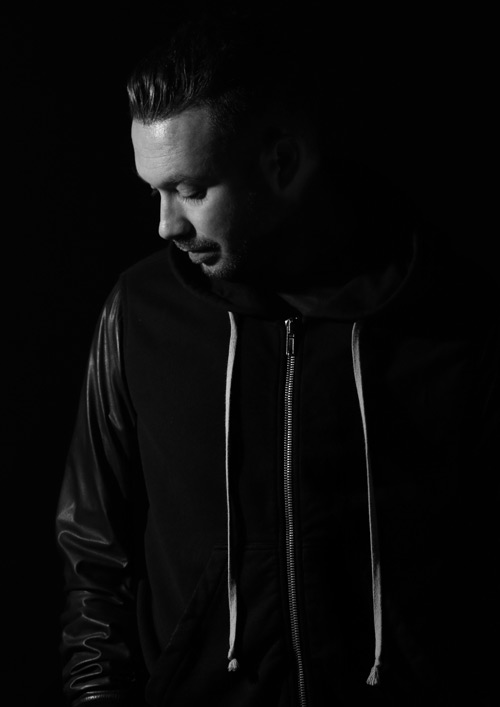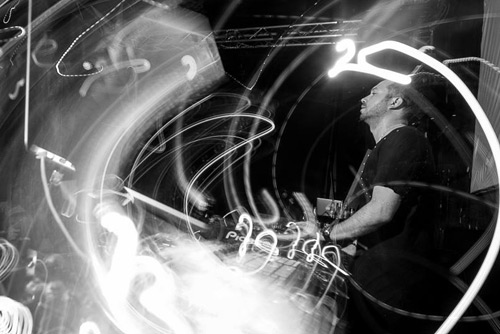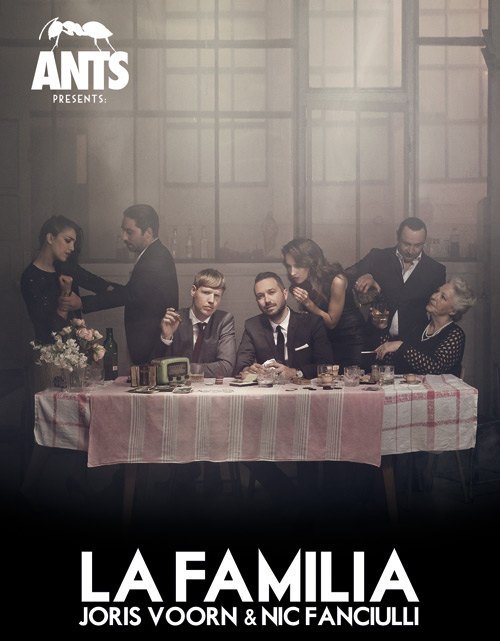Following acclaimed mix albums from Loco Dice and Nick Curly, this July Nic Fanciulli is the latest artist to lend his sizeable talents to our In The House series.
Ahead of its release, we caught up with the Grammy nominated artist to discuss his label, Saved Records, his new Ibiza residency, and his creative approach to Nic Fanciulli In The House.
A lot of artist bios start off with something like, “At six years old he had already mastered the drum machine, flute and banjo.” Is there anything from your early childhood that would suggest that you would go on to be a successful musician?
There was a lot of disco music from my dad’s side. There was a lot of vinyl in the house and a lot of tape. He had a tape machine. There was a lot of funk, soul and disco played in the house, and that is where I started to get into music. Later on I became a drummer in school. Early bands for me were Oasis, The Charlatans, Happy Mondays and The Stone Roses. Then I got obsessed with Laurent Garner. It really opened my ears to how DJing was done. He could play the whole night – start of with ambient to reggae, to techno, to house. Everything mixed together in one night, and that was what really made my ears prick up and think, “Yeah, I want to do this.”
Can you remember the first gig at which you thought you might be able to make a career out of it?
There was a club in Maidstone called Club Class. It was the place where everyone was playing – Carl Cox, Sasha and Digweed, Pete Tong. I was doing these mixtapes, and I was giving them to Serg, the promoter of the club. I was so excited about doing these tapes that I forgot to write my name on it, and when he finally found me he said, “Look, I’ve been trying to find you for a couple of months. You didn’t put any contact details on these tapes. We want you to play for us.”
For me play at this club would be like being a Chelsea fan playing for Chelsea. I learned a lot of my craft there. One day I would be doing warm-up, the next the closing and another the guests wouldn’t turn up so I would be doing it all night. I got to tailor my sets for the night, and that’s where I learned how to become a DJ - not just going in and playing the big records, but learning how to warm up a crowd, how to close a room. That was my apprenticeship into music.
The first time I thought I could make a career out of this was when we did the Essential Mix from Maidstone at Club Class. I think it was their sixth anniversary. I was like “I like this life, and I want to keep playing music week end week out.”
A few years back you were nominated for a Grammy for your ‘Damage’ remix. When you finished that remix, did you think at the time “I’ve nailed that”?
I’m going to be honest. When I did the remix of Tiefschwarz and Tracy Thorn, I hated it. I was making a lot of techno stuff with Skylark, and I made this sort of classic house record. The vocals are amazing. Tracy Thorns voice is incredible. And I didn’t play it. I was not sure about the record, and I did three or four versions of it. I sent to Ali and Basti of Teifschwarz, and they were like “We love this version.” At first I did not like it at all, but by the end I loved it. I still play it occasionally.
When you’re producing music, is there anyone that you use as a sounding board to give you another perspective on what you’re doing?
Luckily, I’m quite fortunate that I can leave my studio on a Friday and test it at a party over the weekend. The crowd is the perfect people to get a reference for it. I also use my brother, Mark, a lot. He’s got a good set of ears and is pretty honest with me about what’s good and not good.
I think a lot of the time, if you spend too long on a record, you shouldn’t put it out. I really feel that if you make a record in the first three or four hours it’s going to be good. You’ve got that feeling, and the rest of it about the mix down, the editing and the arrangement. If you’ve got this idea that you love and you’re not bored of then that’s the record that you end up putting out.
Your label, Saved Records, started operating in a time when it was quite difficult for record labels in general. Why do you think it has managed to get to the milestone that it has?
When we first started Saved, it was an outlet for me and Andy Chatterly to put out our Skylark and Buick Project records. We had so much music; we just wanted somewhere to put it. It ended up becoming a label where people were sending us demos. People like James Talk in the early days and Paul Woolford. We really wanted to put these records out, and I was playing them in my sets. After the third release, I went on tour and took my foot off the pedal with the label, and it pretty much turned to shit.
When I came back off tour, no one really cared about the label. I realized at that point that people do really do believe in labels. They really buy into what you create. For a label, care and attention is the most important thing; if the head of the label doesn’t seem to be bothering then why should the people buying the records?
My brother had just finished his music degree at university, and he came to work with me. I told him the one thing I wanted to do was to get label fixed up and back on track. And we did. We managed to spend everyday working on the label from checking out demos, artwork and remixes. We worked really hard on it, and that’s how we got to the 100th release just out of sheer determination, care and attention.

The last compilation you put out with Balance was really well received; you obviously put a lot of work into it…
The Balance album took a lot of time and effort – nearly a year. That was three years ago now, and the time was right to do something else. I saw that Loco Dice had done the Defected In The House compilation, and I saw the amount of effort and attention was put into it from the photo shoot, videos, artwork to the interviews. I’ve known Simon for a long time at Defected. We’ve had a good relationship since the day I started; I’ve known him since I was eighteen or nineteen. It’s nice to go full circle back. Defected has always had a good place in my heart so I’m happy that we are doing the compilation together.
I used to be one of the first people who would come up and get the first test pressings when Simon had them. Fluential was the label part of Defected that I was really into because my music was a little bit more techy, a little bit more techno, and they were putting out these amazing records by Tom de Neef and Sebastian Leger. Defected would also put out records that would interest me as well; it was a label that I used to play a lot of.
I used to do my record shopping up Berwick Street where Defected was originally, and used to do the rounds going to Black Market, Record Tape Exchange and I would stop off and see Simon and say, “What have you got for me?” And he would say, “Here you go.”
How do you approach mix album like this?
In the past, I would start off with three or four hundred records. They are not obvious records; they are records that I feel are timeless. I feel that when you are producing a compilation nowadays – you know, there are so many mixes online, there are so many podcasts – I think you have to give something to the people that are buying the compilation – something special. Something that in ten years time, they are going to listen to it and think it still sounds good.
In terms of the creative process, I normally break it down into two CDs. The first CD is normally something that is a little bit more musical and in depth – something that I would play early on or late on in the club. The second CD – I try to get my DJ sets onto the compilation, the main two to three hour sets that I play.
It’s a six to eight month process for me. I always mix the compilation, listen to it, edit it, go back and mix it again. I have my brother here as an extra set of ears, but I find it really stressful. People seem like they don’t want to be around me when I’m doing a compilation. With a compilation I treat as an artist album; I feel if people are paying good money for it, you should deliver something that is above your expectations. I know it’s the very best that I can do. I think that is the most important thing, and hopefully people will like it.

What is the most enjoyable thing about what you do?
I think the pleasure I get from playing music to people weekend week out. There’s nothing that can beat it. I could sit in the studio five days a week, but there is nothing better than playing my first record at a club. Especially at a club that I love with a bunch of people in front of you that just want to listen to good music. They have been working from Monday to Friday, and that release that they have for the weekend. They are there to support you - most of the time (laughs).
My passion for DJing still has not stopped. I still get goose bumps and butterflies now. I still get nervous. I get more nervous now than before because there is more pressure. Every week you gotta be on your game because I don’t want this to stop. I want to keep doing this for a good few more years, and while I’m enjoying as well. I think the day the enjoyment stops, that’s when I’ll stop.
How do you stay relevant? How do you continually push yourself to be on top of your game?
I think the key to staying relevant is staying true to what you do. People who try to go into different genres because they are fashionable at one time tend to disappear. If you go down one route too much you are leading yourself up to a dead end. The artists that I looked at when I was younger, people like Laurent Garnier, Francois K. These people have such an open mind about music that they are still around now because they didn’t stick to one particular genre. There were not pigeon-holed; they weren’t conforming to what was relevant at the time. They were just doing their thing.
It’s best to just stick to your guns and get on with it, and when the time is right, you’ll get your break. I know it sounds hard, but it’s patience. When we were breaking though, especially with people like James Zabiela, we were doing the apprenticeship. We were doing the warm up, playing for no money. We were doing everything you had to do to make is as a DJ at the time, and now sometimes if you are fortunate enough, you can just make one record and go on tour for the rest of your life.
Trying new things is also important. This year myself and Joris [Voorn] are starting a new residency, La Familia, at Ushuaia in Ibiza. The whole Ushuaia crew have been so supportive of both of us as DJs, so we couldn’t really imagine doing it anywhere else. I’m really excited about this summer on the island.

Do you think there’s anything wrong with building a career off the back of a hit record?
Making records is fine, but being a DJ, you learn how to work a crowd. Sometimes when you come from a production background, you are so used to being in the studio that you don’t know how to move the dance floor. I’ve seen people like James and Eats Everything absolutely rock the floor, and obviously it’s something they have learned from their time being just DJs.
I was speaking to someone in Munich on Friday, and he was telling me that he has been DJing for ten years and getting nowhere. I told him he just has to keep doing it, and that you just can’t give up. Next year you might make a record, you might turn a page, and you could be playing all around the world. How many times have we heard that story?
Defected presents Nic Fanciulli In The House is out 06 July (2CD and digital) on Defected Records - order on iTunes and Amazon
Nic Fanciulli and Joris Voorn's La Familia Ibiza party kicks of 19 July at Ushuaia - full season listings here



